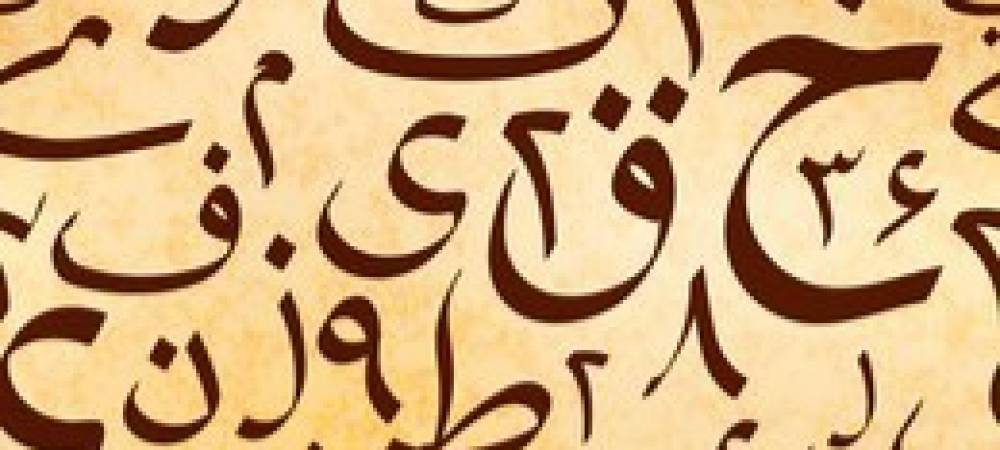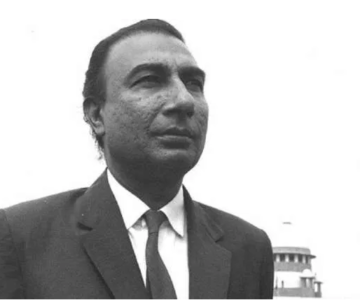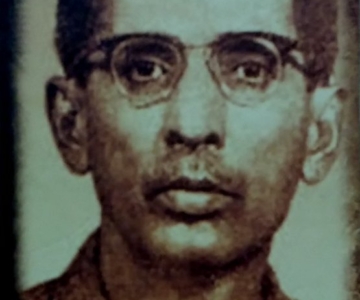Sir.
In his letter “Cracks in KK” (TFT, Aug 31-Sep 6), Khalid Hasan objects to KK Aziz’s evaluation of Faiz as having “no subtlely or profundity.” In an interview printed in a Sunday, September 2nd national newspaper, Wazir Agha makes a comment much to the same effect: “Faiz wrote good verse in Naqsh-e-Faryadi, but later became static. His creativity froze as he became a poet of a single track.”
These two gentlemen, each a scholar in his own right, have a huge body of work behind them, in front of which Khalid Hasan should feel humbled.
In the second part of his letter, Hasan takes issue with Aziz’s claim that Urdu is a foreign language. Well, is it not? Anyone familiar with the history of Urdu would know that it was invented by throwing together several languages in the blender, with another foreign language, Persian, floating up to the top as a dominant influence. Consider just one example of Ghalib’s verse: “Hoon garmi-e-nishat-e-tasawwar se naghma sanj/ maen andaleeb-e-gulshan-e-na afrida hoon.” And this is supposed to be an Urdu couplet!
The foreignness of Urdu is confirmed by two instances. One, in Uttar Pradesh, the home of Urdu, no young person up to the age of 40 can read Urdu script, having been schooled in Hindi as the medium of instruction. Two, in Pakistan, Urdu was imposed as the national language, whereupon what was then East Pakistan (now Bangladesh) promptly and violently rejected it.
Back in Pakistan, as we know it today, we have a ridiculous situation whereby the bureaucracy speaks in Urdu to the public at large just to appear officious while writing everything in English – and taking pride in it. Urdu is also used in some middle class homes who aspire to break into the upper-middle class. Everyone else – Sindhis, Balochis, Pathans – use their respective regional languages in daily discourse. Can Hasan say with his hand on his heart that 90 percent of his personal conversation doesn’t take place in Punjabi? As for the government’s attitude towards the so-called ‘national language’, the less said the better, except that it constantly uses Urdu as a fig leaf to cover its contempt for it.
In another generation or two, Urdu will be finished, taken over by English, while the working classes will be using their regional languages. But in the unreal city that Pakistan has become today, we shall no doubt still be kicking a dead horse.
It pains me to write this on two counts: one, I’m still writing in Urdu, knowing that it is a dying language, soon to be consigned to the dusty shelves of libraries; and two, I like Khalid Hasan’s journalism. He should stick to it.
Abdullah Hussein,
Lahore.



